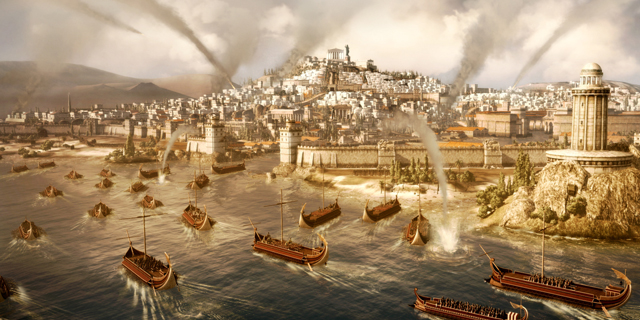
The Total War series has always been about grand strategy meshed with battlefield tactics, but it has grown more refined and complex with each entry. As a result, Creative Assembly has been revisiting some of the more popular historic conflicts and updating them. Rome II looks to enhance and augment the features of the first game, and from what we’ve seen, it’s successful.
What it is: Total War: Rome II puts you in charge of one of eight factions in ancient Europe vying for power and territory. From the strategy layer, you will control the regions and provinces under your rule from the new provincial capitals. These will grow and change the land on the map based on what is built, reflecting the culture and population of your faction. Rome II also has new democracy options, lending itself to a more strategic and devious play style in that regard.
On the tactical layer, there are land and sea battles (as usual), but now there are combined arms battles as well, which task you with defending or attacking at both land and sea simultaneously. This new dimension adds more strategy to troop tactics and fleet movements than in previous entries.
Why we’re excited: The marriage of grand strategy with military tactics is a proven formula for success with Creative Assembly, and all of the new tactical additions we know of only enhance it. The changes to the strategic layer streamline some of the tedium, while keeping the complexity that makes it so addictive.
What we’re wondering: At first glance, Rome II is very much slanted in favor of the Roman faction. While this is historically accurate and makes sense from a gameplay standpoint, in practice it wouldn’t be enjoyable playing anyone else if they have virtually no chance. With each faction reportedly featuring a different style of play, focusing on diplomacy, trade or military, we want to try them out on relatively equal footing. Until we see the final product, though, balance will remain an unanswered question.
Total War: Rome II is headed for a September 3 release exclusively on PC.




























